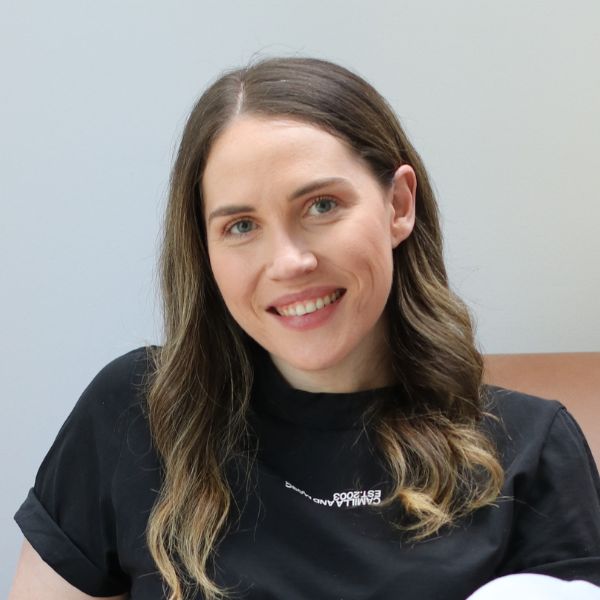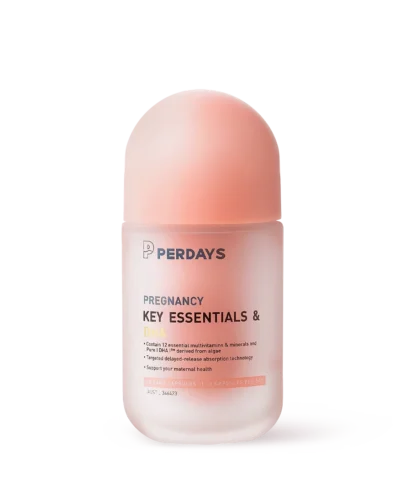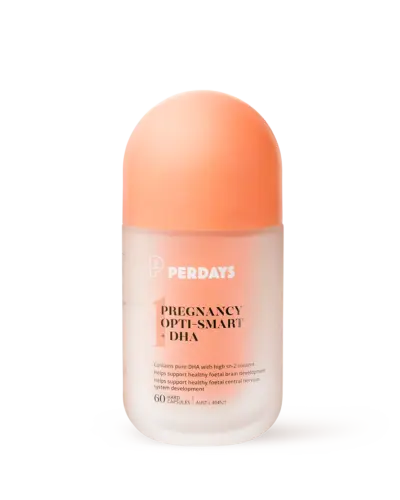By Latoya Cruz
In a Nutshell
- DHA, a nutrient found in fatty fish and other foods, is crucial for healthy brain and eye development.
- Both brain and eye development begin very early in pregnancy, around 3 weeks.
- Brain and eye development continue throughout pregnancy, infancy.
- Pregnant and breastfeeding women need DHA, from food or supplements, for baby’s brain and eye development.
Introduction
During pregnancy, it’s no secret that the mother’s body is busily working away to grow and develop an entire new body. From first trimester onwards, the foetus will start to develop important bodily structures and organs that will continue to grow throughout the pregnancy. Two very important organs that the foetus will begin to develop are the brain and eyes. Both involve very intricate and complex processes of vital organs.
In this article we discuss foetal brain and eye development, when they commence and how best to support these developing organs.
When does foetal brain development occur?
From about 3 weeks into the pregnancy, the foetus will begin developing it’s brain. The brain forms part of the central nervous system and whilst the major structural development occurs until about 18 weeks of pregnancy, the baby’s brain will continue to grow and develop throughout the entire pregnancy, after birth and into adulthood.
When does foetal eye development occur?
Like the brain, foetal eye development will also commence at three weeks gestation. The development of the eyes will continue through to ten weeks. A healthy baby will be born with developed eyes. However, their eye site will continue to develop and mature after birth as they learn to see, focus and track objects with their eyes. Much like the brain, eye development will start in pregnancy and continue post birth and even into adulthood.
How to support brain and eye development
DHA is a vital nutrient in both pregnancy and lactation that is known to support both brain and eye development. Maternal DHA intake will contribute to both brain and eye development during pregnancy and via breastmilk post pregnancy. Research shows that pregnant and lactating women should aim for at least a 200mg intake of DHA per day to help support these growing organs. DHA has been proven to support the growth and functional development of these vital organs. Whereas a deficiency in DHA can hinder the growth and development of a growing baby.
Sources of DHA
DHA is produced in small amounts by the body. It is an essential nutrient we need to consume predominately from our diets and supplements. In order to enhance DHA intake, it is paramount to consume foods high in the nutrient. Think oily fish, shellfish, algae, grass fed meat, dairy and eggs. Supplementing with DHA during pregnancy and lactation is also recommended to ensure optimal levels of DHA are consumed by the mother. DHA is often encouraged to supplement prior to pregnancy to ensure adequate stores are met in maternal health.
Summary
Foetal brain and eye development commences at around 3 gestational weeks and will continue to grow and develop years beyond birth. DHA has been proven to support these two intricate and complex processes of two very vital organs. DHA supplementation is encouraged to support these two processes as DHA needs may not always be met via dietary intake. Research shows that DHA deficiency can hinder the progression of the brain and eyes.
Looking For a Pregnancy Multivitamin with DHA?
Perdays Pregnancy Key Essentials & DHA Perdays is designed to work synergistically to support your preconception and prenatal health, thanks to our patented Nutriseal™ encapsulation technology. This pregnancy multivitamin contains a precise combination of 12 essential prenatal vitamins & minerals with algae-derived DHA and Folinic Acid to be absorbed by all women.
Only Looking for extra DHA?
Perdays Pregnancy Opti-Smart DHA is designed to increase your DHA levels during Pregnancy and Breastfeeding. Opti-Smart DHA contains pure DHA with high sn-2 content for even more bioavailability and maximum absorption to support healthy foetal central nervous system, brain development, and more.

Latoya Cruz is a qualified nutritionist, registered with the Australian Traditional Medicine Society (ATMS). Latoya has an interest in women’s health including fertility, pre and postnatal, hormonal health and supporting busy, burnt out mums.
References
- https://www.ncbi.nlm.nih.gov/books/NBK582659/
- https://www.ncbi.nlm.nih.gov/books/NBK538480/
- https://www.ncbi.nlm.nih.gov/books/NBK482496/
- https://www.aoa.org/healthy-eyes/eye-health-for-life/infant-vision
- https://efsa.onlinelibrary.wiley.com/doi/pdf/10.2903/j.efsa.2009.1006
- https://www.mountsinai.org/health-library/supplement/docosahexaenoic-acid-dha



